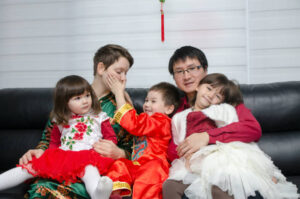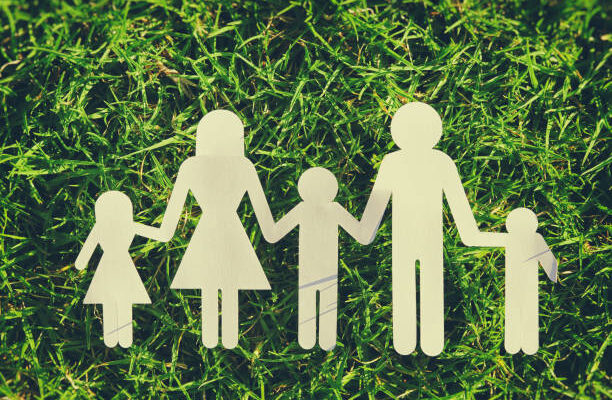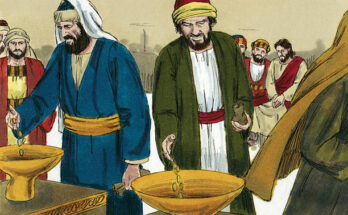Family, often considered the cornerstone of society, serves as a crucible for the interplay of various factors that shape human relationships. Among these influential elements, religion stands out as a profound force that significantly impacts the dynamics of family connections. This article delves into the multifaceted ways in which religion impact family life, exploring the positive and negative aspects of its influence and the intricate balance it strikes between tradition and individuality.
The Role of Shared Beliefs in Family Cohesion
 (Photo from iStock)
(Photo from iStock)
Religion, with its doctrines, rituals, and shared beliefs, plays a pivotal role in fostering a sense of cohesion within families. Shared religious values serve as a moral compass, guiding family members in navigating the complexities of life. Whether it’s the moral teachings of Christianity, the Five Pillars of Islam, or the ethical principles of Hinduism, these shared values provide a common ground for family members to connect, bond, and find support in times of joy and adversity.
In many religious traditions, families gather regularly for worship, prayer, and communal activities. These shared religious practices not only strengthen the bond between family members but also create a sense of belonging to a larger community. The collective experience of participating in religious ceremonies fosters a shared identity, reinforcing the idea that the family is part of something greater than itself.
However, the impact of religion on family cohesion is not universal. While shared beliefs can strengthen familial ties, they can also become a source of tension in families where members hold divergent religious views. Interfaith marriages, for example, often require thoughtful navigation of differences in religious practices and beliefs. The challenge lies in finding common ground that respects individual autonomy while preserving the unity of the family.
Positive Impact on Values and Morality
Religion often serves as a repository of moral values, providing families with a framework for ethical decision-making. Many religious traditions advocate for virtues such as compassion, kindness, and forgiveness, shaping the character of individuals and influencing their interactions within the family unit. The teachings of various faiths often emphasize the importance of familial responsibilities, encouraging individuals to prioritize the needs of their family members over personal desires.
In this context, religion becomes a source of guidance for parents in instilling values in their children. Moral teachings embedded in religious texts offer a roadmap for navigating ethical dilemmas, fostering an environment where empathy and understanding thrive. The emphasis on moral conduct within religious frameworks contributes to the creation of a supportive family environment where individuals are encouraged to make choices that align with ethical principles.
However, it is essential to acknowledge that the positive impact of religion on values and morality can sometimes be accompanied by challenges. Rigidity in interpreting religious doctrines may lead to intolerance or judgment within the family, particularly if individuals deviate from established norms. Striking a balance between upholding moral values and promoting open-mindedness is crucial to prevent the potential for strained family relationships.
Impact on Family Traditions and Rituals
 (Photo from iStock)
(Photo from iStock)
Religion significantly influences the traditions and rituals observed within families. From birth ceremonies and weddings to funerals, religious customs shape the way families mark significant milestones.
Religious festivals, celebrated with enthusiasm and joy, create lasting memories for families. The observance of these festivals often involves extended family and community members, reinforcing social bonds beyond the immediate family circle. The shared experience of participating in religious rituals fosters a sense of unity, connecting family members across generations.
However, the influence of religion on family traditions can also pose challenges, particularly in multicultural and diverse societies. Families with members from different religious backgrounds may grapple with the question of which traditions to prioritize or how to blend practices from various faiths. Navigating these complexities requires open communication, flexibility, and a willingness to create new, inclusive traditions that honour the diversity within the family.
Challenges and Tensions Arising from Religious Differences
Interfaith marriages, for instance, may face challenges in reconciling differences in religious practices, traditions, and core beliefs. The key to addressing these challenges lies in fostering open communication, mutual respect, and a willingness to embrace diversity.
In some cases, rigid adherence to religious doctrines can lead to intolerance or exclusion within the family. Individuals who deviate from established religious norms may experience judgment or rejection, creating rifts that strain familial relationships. Striking a balance between upholding religious values and promoting acceptance of individual differences is crucial for maintaining healthy family dynamics.
Moreover, the influence of religion on family connections extends beyond the immediate family unit to the broader community. Social expectations within religious communities may exert pressure on families to conform to certain norms. Potentially limiting individual autonomy and contributing to a sense of isolation for those who do not align with prevailing beliefs.
Impact on Parenting Styles and Family Dynamics
 (Photo from iStock)
(Photo from iStock)
Religious beliefs often shape parenting styles, influencing the values and principles parents instill in their children. Many religious traditions emphasize the importance of education, discipline, and moral development, guiding parents in their approach to raising children.
However, the impact of religion on parenting styles can vary widely. Some families may adopt a more authoritarian approach, emphasizing strict adherence to religious rules and doctrines. While others may embrace a more permissive style that allows for individual exploration of faith. Striking a balance between instilling religious values. And fostering independent thinking is a delicate task that requires thoughtful consideration. Of the diverse needs and perspectives within the family.
Religion also plays a role in shaping family roles and expectations. Gender roles, in particular, may be strongly influenced by religious beliefs, impacting the division of labour within the family.
Conclusion
In conclusion, the impact of religion on family connections is a complex and multifaceted phenomenon. While shared beliefs can serve as a powerful glue. Binding family members together and providing a moral framework, religious differences can also pose challenges that require thoughtful navigation.
As society continues to evolve and become more diverse, the role of religion in family life will likely undergo transformations.




